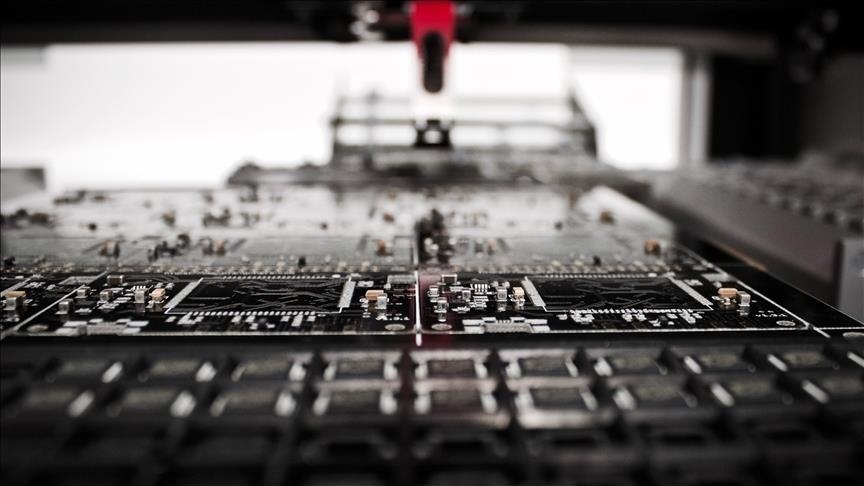China, US chip war up a notch after export restrictions
China restricts exports of gallium and germanium, important raw materials in chip production

ISTANBUL
The trade war between the US and China is up a notch after Beijing imposed export restrictions on raw materials used in manufacturing chips.
Both countries are fighting for space in the fast-evolving areas of cyber security, artificial intelligence, semiconductors, chips and digital infrastructure.
According to research by Australian think-tank The Australian Strategic Policy Institute (ASPI), China is far ahead of the US in technology.
China holds the leadership in 37 of 44 technology fields, while the US is ahead of China in seven fields, it said.
China is not among the largest manufacturers of chips, however, it is the largest consumer. The manufacturing is carried out by the US and other companies in East Asia.
Technological competition between the US and China has increasing importance and major implications for the global economy and security.
About 75% of chip production takes place in East Asia. Taiwan, South Korea, and Japan are at the forefront of chip production.
However, China is the largest producer of gallium and germanium, which are raw materials used in the manufacturing of chips.
According to the European industry association Critical Raw Materials Alliance, China produces about 60% of germanium globally.
'America is back'
The "Chip and Science Act" passed by the US Congress on July 27-28 last year called for $280 billion in incentives to encourage domestic chip production.
The agreement, signed by US President Joe Biden on Aug. 9, provides $52 billion in direct funding to support the semiconductor industry.
According to this law, domestic chip production and new factories will receive a 25% tax exemption for four years.
With these measures, the US aims to increase domestic chip production and gain a stronger position in global technological competition.
Experts also state that the US wants to attract chip production to its mainland in order to prevent a possible chip crisis due to China's policies against Taiwan in the region.
The aim of the "Chip and Science Act" is to eliminate this risk and make the production of such a technologically critical products safer.
The incentives and funding provided by the law are designed to support domestic chip manufacturers and encourage the construction of new chip factories within the US.
In this way, the US will diversify and localize chip production, aiming to reduce external dependence in the supply chain and increase the security of chip production.
Most recently, US President Joe Biden said on Twitter: "America is back. We are going lead the world. Because everything we are talking about in the Chips and Science Act is going to be made in America, produced and made in America, create thousands of good paying jobs, investing literally hundreds of billions of dollars. We used to lead the world in semiconductors and computer chips. We are going to do it again. And I am more optimistic about America's prospects than I've ever been in my whole career."
China restricts exports of raw materials used in chip making
Following all these developments, China took a decision that will affect chip production and imposed export restrictions on gallium and germanium, which are important raw materials in chip production.
China's decision requires approval from the relevant authorities before exporting gallium and germanium.
The restriction came into effect on Aug. 1.
Experts noted that China took this decision to warn other states, reminding them that they also have retaliation options against restrictions.
Chips are of great importance in every field from home appliances to in-vehicle electronic systems, from the defense industry to wearable technologies.
They are among the basic elements of electronic devices and are considered their "brain".
Recent rapid technological progress and the constant introduction of new devices have greatly increased the demand for chips.
In particular, the increasing popularity of smartphones and other smart devices has pushed chip manufacturers to meet the high demand.
Due to the chip crisis, Apple, one of the world's largest companies, had to postpone the introduction of its new model, the iPhone 12, for a certain period of time.
*Writing by Gokhan Ergocun
Anadolu Agency website contains only a portion of the news stories offered to subscribers in the AA News Broadcasting System (HAS), and in summarized form. Please contact us for subscription options.








